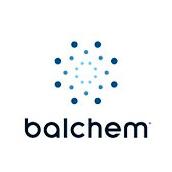Sustainablity of Small Holding Farmer vs Emerging Commercial Dairy and Poultry Farming – An Analysis into the Rural Micro Economy of Pakistan and Afghanistan
A increasing trend of shifting from traditional to commercial/intenstive livestock and poultry production in the entire world and more recently in developing countries like Pakistan is generally seen as a step forward towards attaining food security for nations. Being intensive in its nature, commercial animal food production through environmentally controlled housing, feeding, management and health care of exotic breeds yields more efficient results with more financial returns. However, this phenomenon on one side makes it possible to provide ample and cost effective animal protein and strengthens to cause of animal food security but on the other hand, increasingly resulting into monopolization of this sector into few hands. Most serious concerns in the regard are that the small holders in poultry industry have completely been wiped out of the market whereas the similar trend is being promoted by the Government policies and opportunist investors who have no strategic association for any profession except for huge profits. Emerging dairy sector is now prospering on the import of exotic Holstein Friesian and Jersey cows and housing them in controlled housing for optimum production. By now an estimated 40,000 exotic cows have been imported to establish corporate or commercial level dairy farms which is worth of about 80 million USD importation alongside importing equipment, health care products and machinery amounting to similar amount every year. Apart from that, the importation of exotic semen for crossbreeding has not only burdened our economy for the last 40 years but it has also played a havoc to the genetic fabric of our local/indigenous/desi cows and purebred dairy breeds by diluting their fitness and adaptability to our local environment. Indiscriminate crossbreeding in the past and its ongoing acceptance for high milk yield is playing a positive role for short term however, its longterm agro-ecological ill effects on local biodiversity, environment, climatic change, social and economic implications across 70% rural folk and 55 million small holders are not being considered as yet as to how these changes are transforming and complicating our society as a whole. This review is a part of awareness campaign which all of us should promote to clearly separate the two domains viz; conservation and genetic improvement of local/desi and purebred cattle with no mixing of blood any more either in case of desi or purebred cows, before we as a nation are not able to assess the scale of indigenous genetic diversity loss through next generation genome analyses.
Keywords: Sustainablity, Small Holding Farmer, Emerging Commercial, Dairy, Poultry, Farming, Rural, Microeconomy, Pakistan, Afghanistan






.jpg&w=3840&q=75)